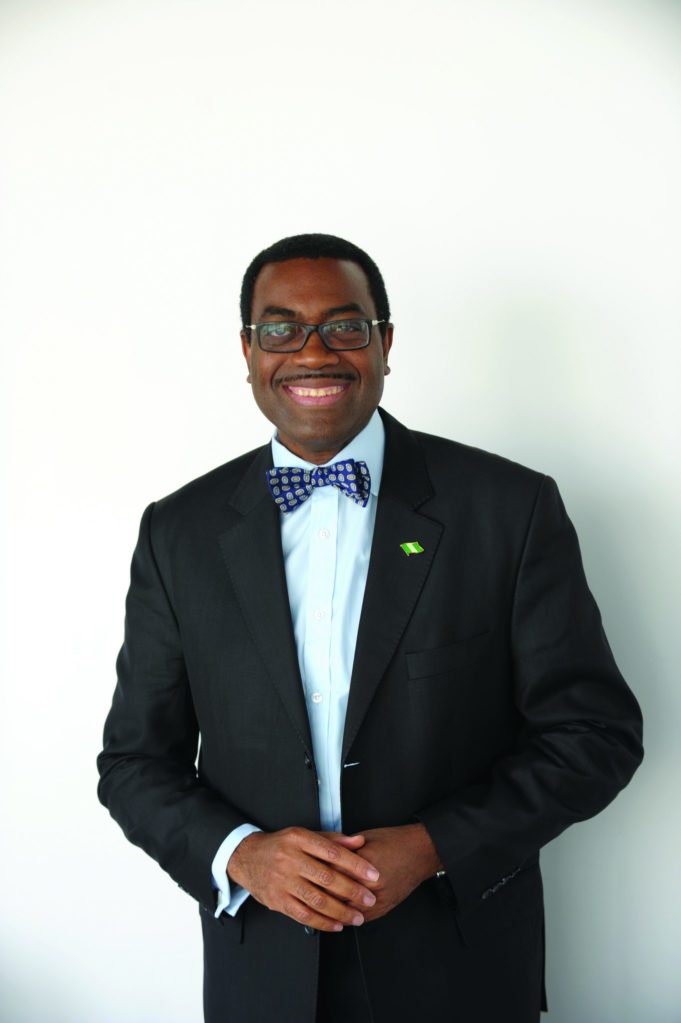We called it. Nigeria, the African Development Bank’s (AfDB), biggest shareholder, finally landed the bank’s presidency at its fourth attempt.
Final figures showed Akinwumi Adesina, the Minister of Agriculture and Rural Development in the administration of former president, Goodluck Jonathan, was backed by 58.01% of all shareholders, to defeat Chad’s finance minister, Kordje Bedoumra (34.48%), and Cape Verde’s finance minister, Cristina Duarte (2.87%).
Africa’s largest country, which holds 9.3% of the AfDB, almost double the total of the next two biggest African shareholders, had failed on three previous attempts to capture the presidency of the bank since its inception in 1964, scuttled by an unwritten rule that Africa’s biggest economies shouldn’t vie for big continental positions and the discomfort of smaller nations wary of domination and stronger candidates than its own.
“Today, I have been given a great responsibility,” said Adesina after beating seven other candidates that had contested one of the most open election processes for a global development finance institution that mirrors the European Bank for Reconstruction and Development and the Asian Development Bank.
“I will be a president for all. I will not let you down.”
Loading...
In six rounds of voting, in Abidjan, the capital of CÔte d’Ivoire, spanning just over four hours, Nigeria’s alliances proved the more resilient. In the first round, Adesina was second with 26% of the overall vote, trailing Duarte who led by 29.5%, with the Southern Africa Development Community (SADC)-backed Thomas Sakala of Zimbabwe third, with 13.5%. Sierra Leone’s Minister of Foreign Affairs, Samura Kamara, whose country holds 0.25%, was eliminated after receiving 0.3%. No figures were available for the latter rounds at the time of going to press.
Adesina takes over Africa’s only triple-A rated development finance institution, which last year increased project funding by 15% to $7.6 billion, largely in infrastructure, adding to the $28 billion poured in the decade to 2014, versus $18 billion in the four decades between 1964 and 2004.
Aside from infrastructure, outgoing president, Donald Kaberuka of Rwanda, also focused on attracting private sector money to the bank, an effort that saw South Africa’s FirstRand and the bank partnering in creating a $200-million fund to boost African trade. The inclusion of women in economic development was also key, as well as continuing efforts to reduce conflict through the bank’s Fragile States initiative.
Both Adesina and Nigeria’s former Finance Minister, Ngozi Okonjo-Iweala, under whose watch Nigeria supported Adesina, emphasized inclusiveness in the bank’s decision-making process, seeking to allay the fears of marginalization raised by smaller African countries who have now seen the number one and number two economies take leadership of the continent’s foremost institutions after South Africa’s Nkosazana Dlamini-Zuma was elected Chairperson of the African Union in 2012 in heavy lobbying African analysts say came at a heavy political price for President Jacob Zuma.
“We will be inclusive in our approach,” Okonjo-Iweala told FORBES AFRICA after Adesina’s victory. “It’s a great 50th anniversary gift from God to the country. We appreciate it and we take the responsibility very seriously. We will not abuse it.”
In his statement to the board of governors in support of his nomination, Adesina said he wanted to help build a competitive and more integrated Africa while ensuring that growth is more inclusive. To achieve this, his strategy combines five key themes including some from the AfDB’s 10-year strategy outlined at the 2014 meetings and the Africa Union’s Agenda 2063.
That seeks an integrated infrastructure program, growing the private sector, creating jobs for women and youth, reviving Africa’s rural economies and pursuing regional integration through transnational infrastructure and the expansion of regional markets.
“Given the bank’s strength and Africa’s needs, the next phase of the AfDB Group is to take development to the nooks and corners of Africa, through inclusive growth that transforms the lives of the urban and rural populations of Africa,” says Adesina.
It is a plan the board of governors of the bank appear to have bought and that will be tested over the next five years, as Africa’s growth shifts from being externally driven to leveraging off the increasing power of African consumers and economies that have made Africa, alongside India, as the only regional nodes of economic expansion in the world this year.
Loading...
